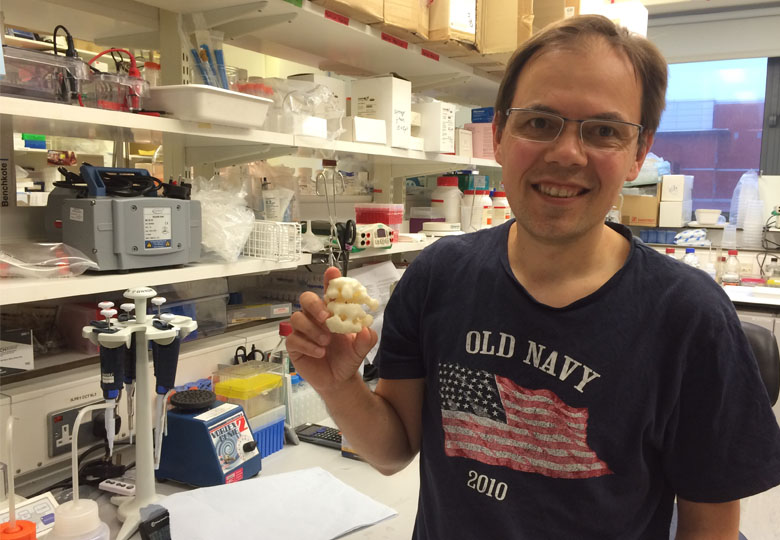By Helen Figueira
July 27, 2015
Time to read: 3 minutes
Deborah Oakley
Christian Speck, head of the DNA Replication group at the MRC’s Clinical Sciences Centre, has won a prestigious Investigator award from the Wellcome Trust.
The Trust says the awards aim to support the “brightest researchers with the best ideas.” For Speck, the award represents five years of funding for high-risk, high-reward study.
“The funding will be transformative because it is so much more powerful than using three year project grants,” says Speck. “It will allow us to do all the really cool stuff. I can now put my most exciting ideas into practice to tackle one of the most important questions in the field.”

Amanda Fisher, director of the CSC, said: “It’s great to see recognition for Christian Speck ‘s work and to ensure that his team has the opportunity to build upon their exciting work over the coming years.”
Speck’s group, part of the Institute of Clinical Sciences at Imperial College London, has developed a pioneering method to investigate how the DNA inside our cells is replicated. Our DNA is stored as two strands that are tightly twisted together and joined like a zip. The most important information sits in the middle of this twisted structure, or in the teeth of the zip, where it is protected from harm. To copy this information, the strands need to be temporarily pulled apart. Scientists know that a ring-shaped enzyme, called DNA helicase, can unzip the DNA by binding to a strand and pulling it through the centre of its ring. But it is not yet known exactly how this happens.
“If this process goes wrong, it can create mutations that lead to disease,” says Speck. “It is one of the central processes in the cell, but we have very limited understanding of it.”
The group is well placed to investigate the process because they have developed both biochemical and structural tests to study how the ring is formed, and how it opens and closes around the DNA strands. They do this by pausing replication when the ring is opening, which allows them to explore how the ring and DNA interact in more detail.
Speck and his team will use the grant to investigate DNA replication in yeast, a discovery tool to find out more about how the process works in people.
The work may also help to improve our approach to cancer therapy. Many chemotherapy drugs attack the stands of DNA inside our cells, and block their replication. This is an efficient way to kill cancer cells, but it can also damage the DNA in healthy cells and create mutations that ultimately lead to relapse. According to Speck, if scientists can understand exactly how DNA replication works, it may be possible to specifically inhibit replication and develop treatments that are less damaging.
For further information, contact:
Deborah Oakley
Science Communications Officer
MRC Clinical Sciences Centre
Du Cane Road
London W12 0NN
T: 0208 383 3791
M: 07711 016942
E: